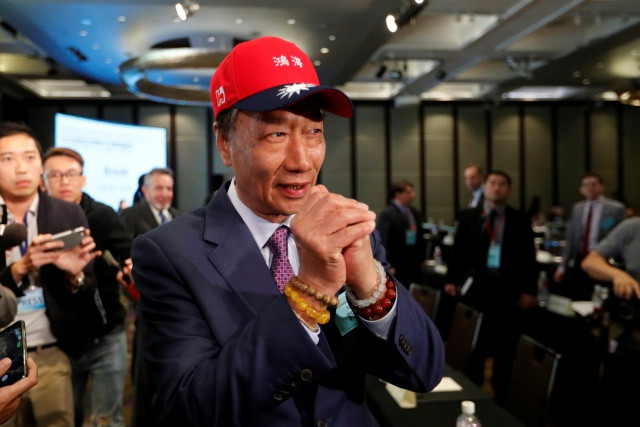Terry Gou, the founder of Apple supplier Foxconn, is once again seeking the presidential nomination for Taiwan's main opposition party, the Kuomintang (KMT), which has historically advocated for close ties with China.
Gou previously stepped down as Foxconn's CEO in 2019 to pursue a presidential bid, but he did not secure the nomination. This development occurs as Taiwan's President Tsai Ing-wen is on a trip to the United States.
Gou addressed reporters on Wednesday at a hotel near Taiwan's main international airport, saying, "We must honestly tell young people that it is dangerous to vote for the [Democratic Progressive Party], which 'exalts Taiwan independence and hates and opposes China.'" He believes that the only way to prevent war with China is to reduce tensions between Washington and Beijing and remove Taiwan's ruling Democratic Progressive Party (DPP) from power.
China views Taiwan as a self-governing breakaway province that will eventually be reunified under its control. In contrast, Taiwan sees itself as separate from mainland China, with its own democratically elected leaders.
On her current trip to Central America, President Tsai is scheduled to meet with US House of Representatives Speaker Kevin McCarthy in California on Wednesday, a highly symbolic encounter that has already incited anger from China.
Terry Gou, a multi-billionaire, amassed his wealth by manufacturing electronic devices for other companies. Foxconn, best known for producing many iPhone models for Apple, was among the first Taiwanese firms to invest in mainland China's factories to take advantage of lower labor costs.
Should Gou succeed in his presidential quest, it is anticipated that he will adopt a more China-friendly stance than the present administration. Tsai Ing-wen, who leads the traditionally pro-independence DPP, became Taiwan's first female president in 2016.
The DPP has already selected party chairman and current Taiwan Vice President William Lai as its candidate for next year's presidential election. The KMT has ruled Taiwan for the majority of the time since 1949 when the party retreated from the mainland after losing the Chinese civil war.





